Traveling with IBS can be simultaneously stressful and embarrassing, particularly if you have only recently been diagnosed. Getting to grips with your condition, and learning to cope with it in everyday life can be a challenge at first.
In the beginning, it can be tricky to establish what your triggers are. This is difficult enough as it is, without incorporating foreign foods and languages into the mix!
However, you should never let IBS deter you from traveling the world. Once you become more accustomed to living with the condition, you know what your triggers are, and you know what methods of relief work best for you. You can start to minimize the impact that it has on your life.
What is IBS?
IBS (Irritable Bowel Syndrome) is a chronic condition. Talking about bowel movements and problems is not the most pleasant thing in the world.
But bodily functions are natural. Speaking openly about the issue will help you come to terms with living with it.
IBS is relatively common, but it affects people in different ways and severity. The disorder affects the large intestine and causes symptoms such as gas, bloating, diarrhea, constipation, abdominal pain, and fatigue.
There is no cure for IBS, it is a lifelong condition. Its causes are not entirely certain either.
However, oversensitive nerves in your gut, a family history of IBS and gastrointestinal problems, and difficulty processing food can all be contributing factors. You can be diagnosed with IBS at any stage in your life.
IBS is not simply having an upset stomach here and there, and it cannot be self-diagnosed. If you think that you may have it or struggle with frequent food poisoning symptoms, constipation, or an upset stomach, it is a good idea to get an official diagnosis from a doctor.
Your doctor will most likely conduct some blood tests in addition to discussing your symptoms with you. In doing so, they will be able to rule out other conditions such as Crohn’s disease and celiac disease, which share some similar symptoms.
Understand what triggers your IBS

The first step towards traveling with IBS, or even being able to manage the condition daily, is understanding what your trigger foods are. These can be different for everyone.
You may find that dairy sets you off, or you may find that you can have a sprinkle of feta or parmesan cheese on your salad, but you are not able to sit and eat an entire cheesy pizza. Coffee and caffeinated drinks can be a major trigger for some people.
So too, can gluten, or consuming certain fruits and vegetables that are too high in fiber, such as green beans and other legumes. Trial and error is the best way to decipher what your triggers are, and this takes time.
Consider keeping a brief journal of what you eat each day so you can easily identify patterns in what is making you sick. It can take a while before you establish the things that you absolutely cannot eat, and the things that you can eat in moderation.
Stress and anxiety can also be major triggers for some people. If you are an anxious person or are going through a particularly challenging time, you may find that the nervousness manifests itself in bowel problems or stomach pain.
The low FODMAP diet is often recommended for sufferers of IBS, although it can be somewhat confusing to come to grips with. Some studies have cited that the diet has helped to reduce IBS symptoms in as many as 75% of people.
Still, the diet is restrictive. It is better to try and establish your triggers first and make a plan for managing your diet, with this in mind for a next-stage option if your IBS is particularly severe.
Tips for traveling with IBS
Your first few experiences traveling with IBS may be worrisome. However, once you know how to adequately prepare yourself for your trip (mentally and practically), you will reach a point where your condition falls almost to the back of your mind.
Tell people about your condition

IBS is an illness, and although bowel movements aren’t exactly a hot topic of conversation, they are nothing to be ashamed of. Everybody has bodily functions, and everyone knows how uncomfortable and unpleasant it can be to find yourself in a situation where you feel like you cannot leave the toilet!
You may find that you feel relieved if you tell people about your condition, particularly if you are going to be traveling with them. Then, if you start to feel unwell and you need to excuse yourself, they will be fully understanding as to why.
Mentally prepare for your trip
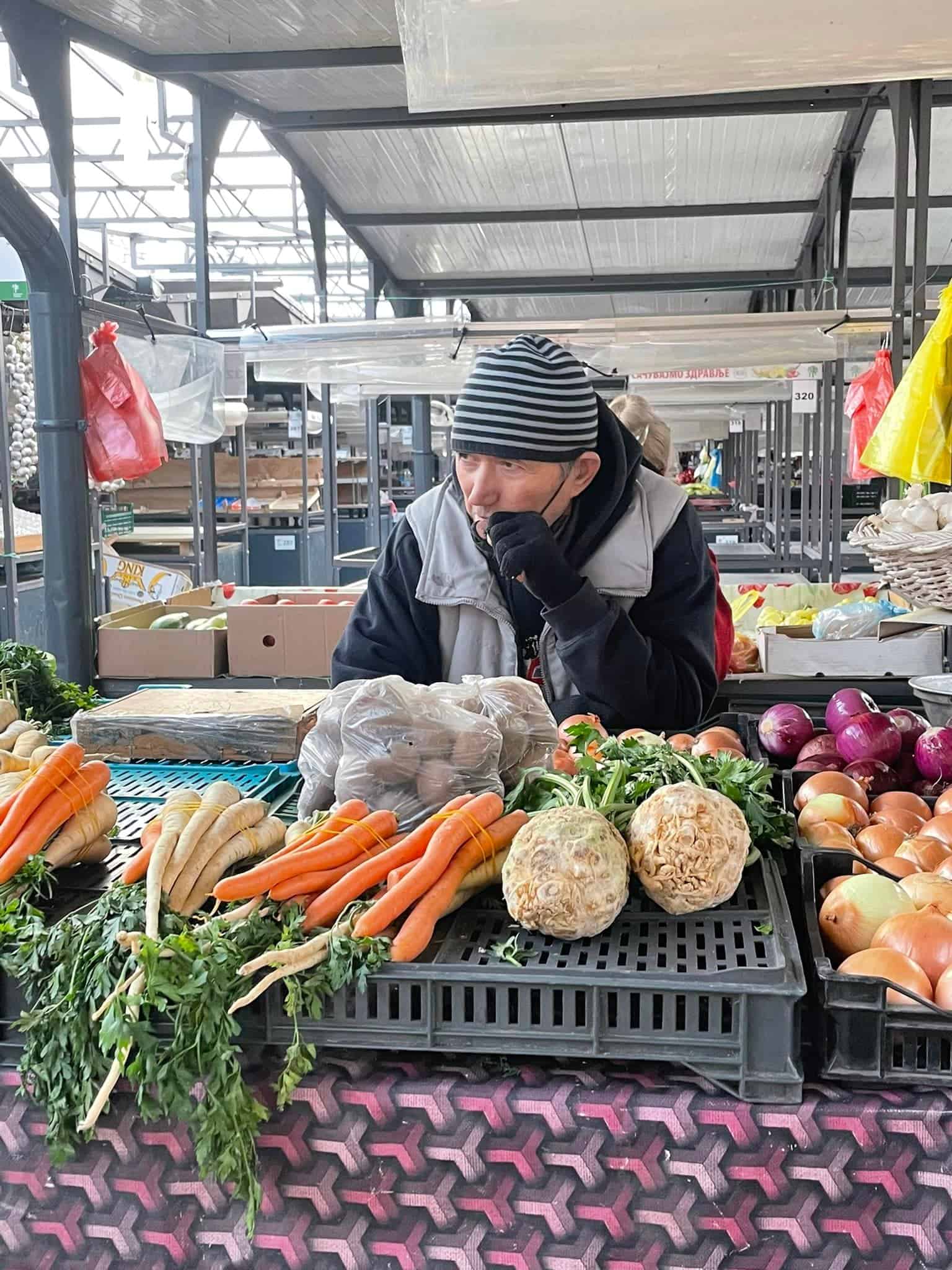
Stressful situations and encountering problems on the road can be as much of a trigger for IBS as eating questionable foods. Before your departure, take the time to organize and plan your trip as much as you can.
Travel throws all sorts of curveballs your way. Try to imagine the “worst-case scenarios” that you may encounter and think calmly about how you will deal with them.
If you are an anxious or Type A sort of person, you might find peace of mind (and, in turn, help ensure a peaceful bowel) if you draw out an itinerary for your trip. Make sure that your hotels are booked, draw out a travel budget, briefly jot down what you are going to do each day, how to get from A to B, etc.
Research the food at your destination
It is helpful to have a rough idea of the types of food that you can expect to find at your travel destination. That way, you can assess whether the food culture in that specific country is triggering for you. If it is, you can then identify some “safe” dishes to look out for.
Living in Greece for instance, you may find that it isn’t too much of a challenge to eat healthily. The availability of fresh fruits, vegetables, and locally sourced ingredients makes it easy to eat absolutely delicious things without them being potential irritants.
Italy, on the other hand, can be a challenge. Although places in Italy and Europe, on the whole, are becoming more accommodating in offering gluten-free kinds of pasta and pizza, if you are traveling with IBS, you may struggle with the richness of Italian foods in general.
Many Italian sauces contain creams and cheeses. Countries with notoriously spicy food, like Mexico, Bhutan, or India, may also pose a challenge for you if spice sets off your IBS.
Sampling the local cuisine should be a highlight of your travel itinerary, wherever you go. Once you’ve researched some safe local dishes to try, save them to a note on your phone. You can also review the best-rated restaurants in the towns and cities that you will be traveling to and their menus online in advance.
Disclose your dietary restrictions

Always disclose your dietary restrictions when booking guided tours, food tours, and flights. Most tour companies and airlines will ask about this at the point at which you make your booking anyway. If they don’t, you can email them and outline what foods you cannot eat.
Don’t hesitate to reach out to tour companies about dietary restrictions. The majority of companies want to be inclusive of everyone. They know that many people today have specific dietary requirements, be they allergies, halal diets, veganism, etc.
An Athens food tour, for example, may serve participants Greek food such as fried cheese (saganaki) or bouyiourdi (baked cheese) that an IBS sufferer or lactose-intolerant individual could not eat. If you let the company know in advance, they will find an alternative for you.
Be careful what you eat before flying
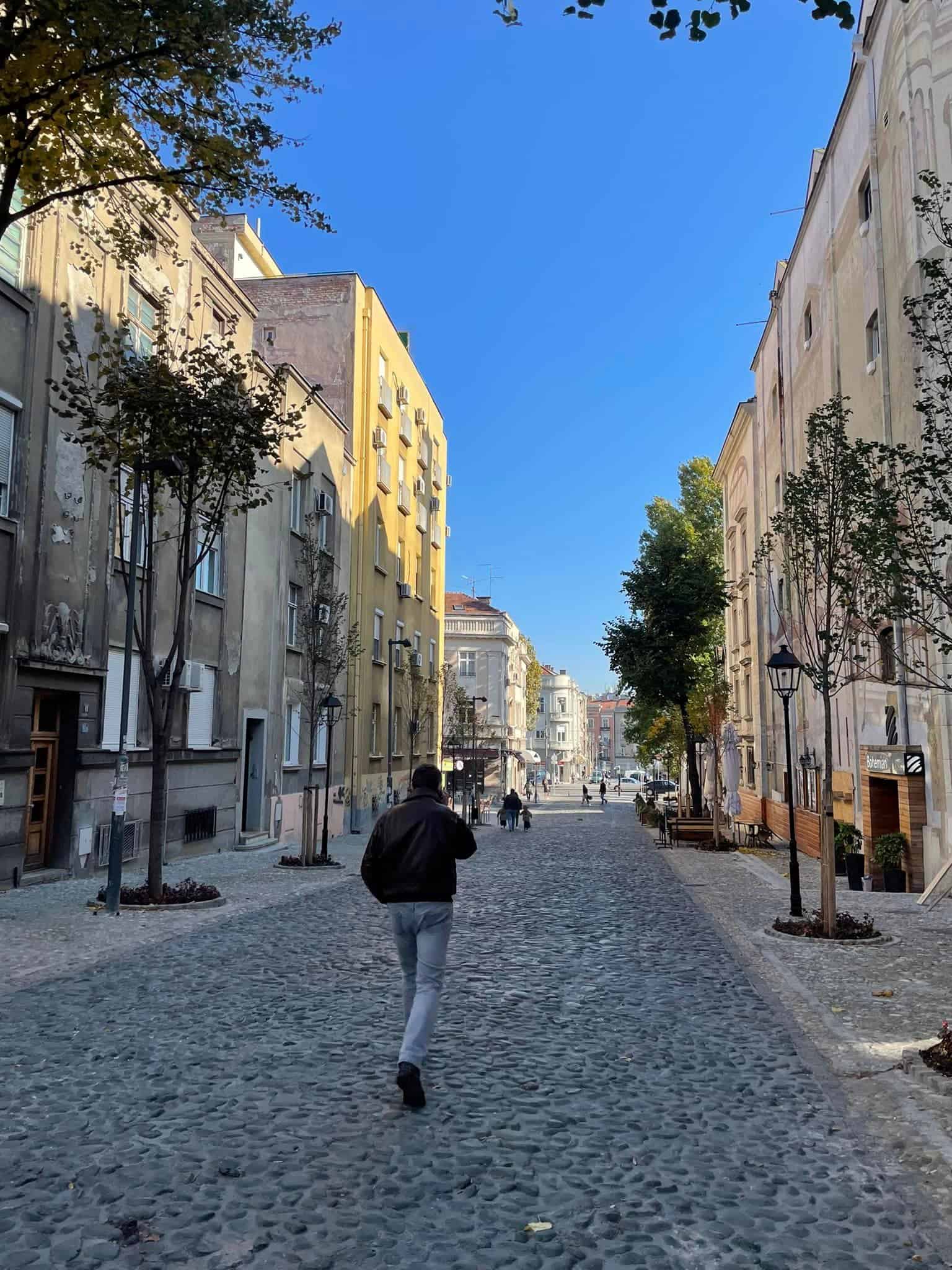
Before you board a flight or embark on a jam-packed travel day, be mindful of what you eat. Try to eat familiar foods that are free from dairy, spice, and high-fiber legumes to minimize your chance of getting sick. A plate of Mexican food and a bottle of wine, for instance, would be a bad idea before a long-haul flight!
Pack smart
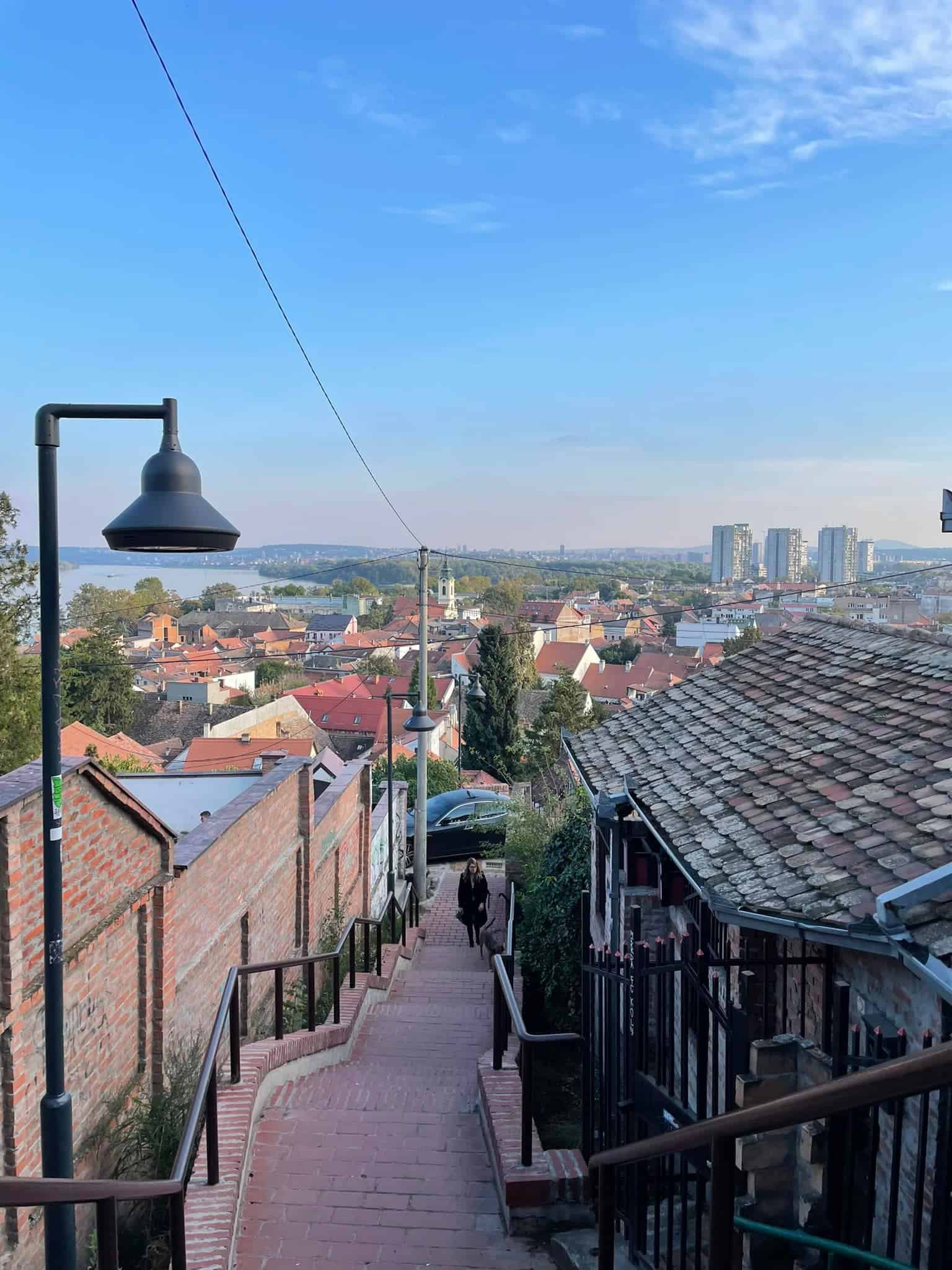
It is smart to take additional precautions when packing for your trip. If you are especially nervous, you can consult with your doctor before departure for any additional advice or prescriptive medication.
It is better to over-prepare for any potential scenario than to find yourself in a bad situation overseas. Pack any medications that you may require (ibuprofen, laxatives, rehydration sachets), IBS-friendly snacks (gluten-free bars, nuts, and trail mix), and additional extras such as baby wipes, a change of clothes in your carry-on, etc.
Eat light

Sometimes you can tuck into a meal that does not contain any of your trigger foods and STILL get sick. Witchcraft! Such is the joy of living with IBS.
When you are traveling with IBS, try to stick to eating lighter meals. Follow the mantra of little and often.
Communicate your restrictions
It would be useful if you could communicate a few helpful phrases to local waiters, restaurant owners, etc. to make them aware of your condition. Even if the phrases are as basic as “no dairy”.
Useful sentences to learn could be things such as:
Does this contain…?
I cannot eat…
Can you make this without using…?
I am allergic to…
Is this gluten-free?
All things considered, learning even just a few phrases in another language is easier said than done. You can also consider downloading a translation app on your phone (e.g. Google Translate) to communicate with locals. Furthermore, cue cards can be found online in various languages so that you can easily show these to the restaurant staff without becoming ‘lost in translation.
Some countries may be more IBS-friendly than others
Knowledge of dietary restrictions, IBS, and gluten intolerance is much higher these days than it was several decades ago. Many restaurants now include a key of symbols on their menus to help their customers identify which dishes contain gluten, which is vegan and vegetarian, etc.
However, awareness of these issues remains low in some parts of the world. For instance, developing nations in Asia.
For that reason, you must do some research before you travel with regard to the main local dishes and what they contain. Although it is far from ideal, in some parts of the world, it is a good idea to carry some cereal bars, dried fruits, or trail mix in your bag with you (or at least some form of snack that doesn’t trigger you).
That way, if you are searching for a restaurant and you can’t find a place that looks suitable, you have something to tide you over until you find a place. Then, your travel companions also don’t have to contend with a hangry, IBS-suffering travel buddy!
Remember it’s okay to take time out
By no means should you let your IBS stop you from traveling or enjoying life. However, equally, know when it’s time to call time out and give yourself a rest.
Taking a day out of your itinerary to just hang out by the pool and relax does not mean that you are admitting defeat or letting your condition win. It means that you are taking care of your body and you shouldn’t feel guilty about that.
Locate the bathrooms everywhere you go
When you enter any restaurant, coffee shop, or indoor establishment, peer around and make a mental note of where the bathrooms are. This way you know exactly where you need to go in the worst-case scenario.
Bathrooms can often leave a lot to be desired, even in modern countries! Always carry paper with you. Antibacterial wipes (for potentially having to wipe down a seat) and hand sanitizer are also not a bad idea.
Reserve the aisle seat on long-haul plane journeys

Unfortunately, most airlines nowadays require you to pay an additional fee for reserving a seat. However, opting to reserve the aisle seat when you fly, particularly on long-distance flights, can give you extra peace of mind if you were to get sick during your journey.
The last thing that you want is the added stress of worrying about whether you can get to the bathroom. This is especially the case if you’re boxed in by the window and the person next to you is asleep! If you should be unfortunate enough to get an upset stomach on your flight, it might feel stressful for you if you have to keep disrupting your flying companions by asking them to get past every few minutes.
Be cautious with street food markets
Be cautious when experimenting with new local foods but don’t terrify yourself into assuming that all that is different is going to make you sick. Street food markets in places such as Asia, South America, and the Middle East can be great places to discover local specialties.
Not everything on a street food market is going to make you unwell. Just use common sense. If you see a queue of locals waiting to eat somewhere, that is generally a pretty good indicator that that is a quality place to eat.
Don’t eat meat or fruits which have been left out and of course, don’t eat anything with flies buzzing around it. These things are certainly not appealing anyway! But don’t restrict yourself too much.
Hydrate

Always drink plenty of water and where possible avoid carbonated drinks and caffeine. Water flushes out the toxins within your body and helps it to function as it’s supposed to.
Not to mention, plenty of water aids you in avoiding constipation. It also allows you to rehydrate if you suffer from loose bowel movements. Consider investing inreusable water bottles such as those offered by Lifestraw. Not only do they reduce your plastic waste, but they also keep your water cool throughout the day.
Consider staying in self-catered accommodation

You don’t travel across the world to spend all your time staying in a self-catered apartment and cooking the same meals as you do at home. However, it is nice to have the option to be able to do so, particularly if your IBS is severe.
Besides, shopping for ingredients at local stores and markets can be part of the fun too. You could opt to dine out once a day but eat your breakfast and another main meal at the house most days. If you struggle or fall ill, you could then also prepare food at home, pack it like lunch, and take it out with you to enjoy picnic-style during your sightseeing.
Traveling with IBS FAQs
Do you still have any burning questions or concerns about traveling with IBS? Hopefully, you will find the answers you are looking for below.
Does travel make IBS worse?
Travel in itself does not make IBS worse. However, eating unfamiliar foods and disrupting your schedule can trigger symptoms.
Can I travel if I have IBS?
You can travel if you have IBS and you should not let the condition get in your way of doing things that you love. However, you will certainly have additional things that you need to keep in mind when planning your trip.
For instance, you should research what the food is like at your end destination and the types of dishes that you are likely going to be able to eat. Pack any medications that you typically rely on and which work for you, and advise your airline operator and any tour companies you are likely to use of your dietary restrictions.
How do I deal with IBS on a road trip?
Pack comfortable, loose-fitting clothes, plenty of water and snacks, and some medicines ¨just in case¨ you are worried about an IBS flare-up on a road trip.
Does flying affect your bowels?
The pressure in airplane cabins can make you feel bloated and constipated, particularly on long-haul flights and if you remain sedentary for a long time. It is a good idea to eat light before and during a flight. Similarly, don’t drink a lot of alcohol or coffee.
Parting Words
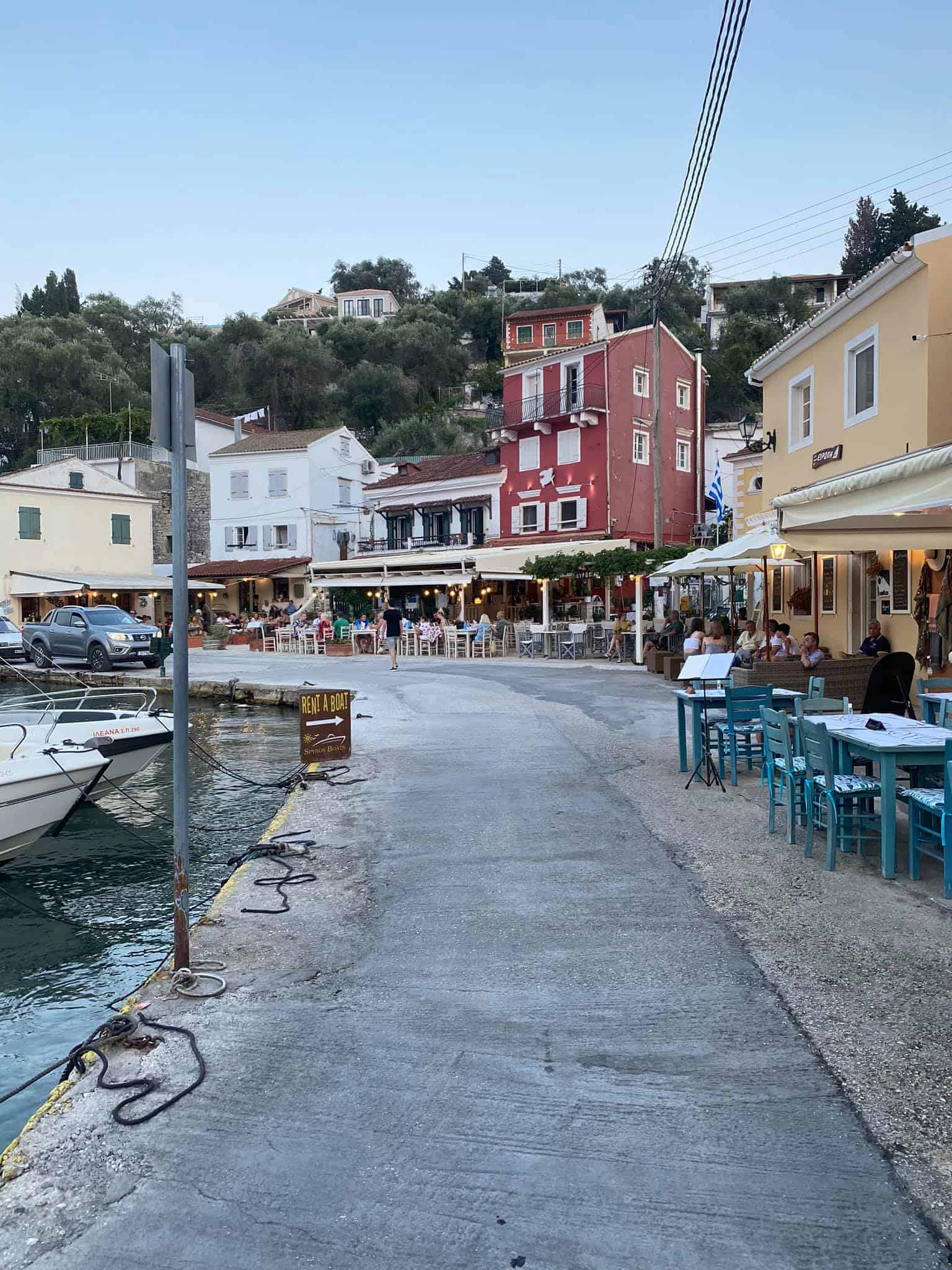
Traveling with IBS can cause a few headaches, but everyone deserves a break. What kind of life would we have if we were just nervously loitering around at home indoors all of the time in case we got sick?
Remember that travel is supposed to be a great experience so don’t spend too much time worrying about your IBS. Go out there and enjoy it!
Do you have any additional questions about traveling with IBS? Perhaps you have some useful survival techniques that you want to share with fellow IBS sufferers?
Safe travels!




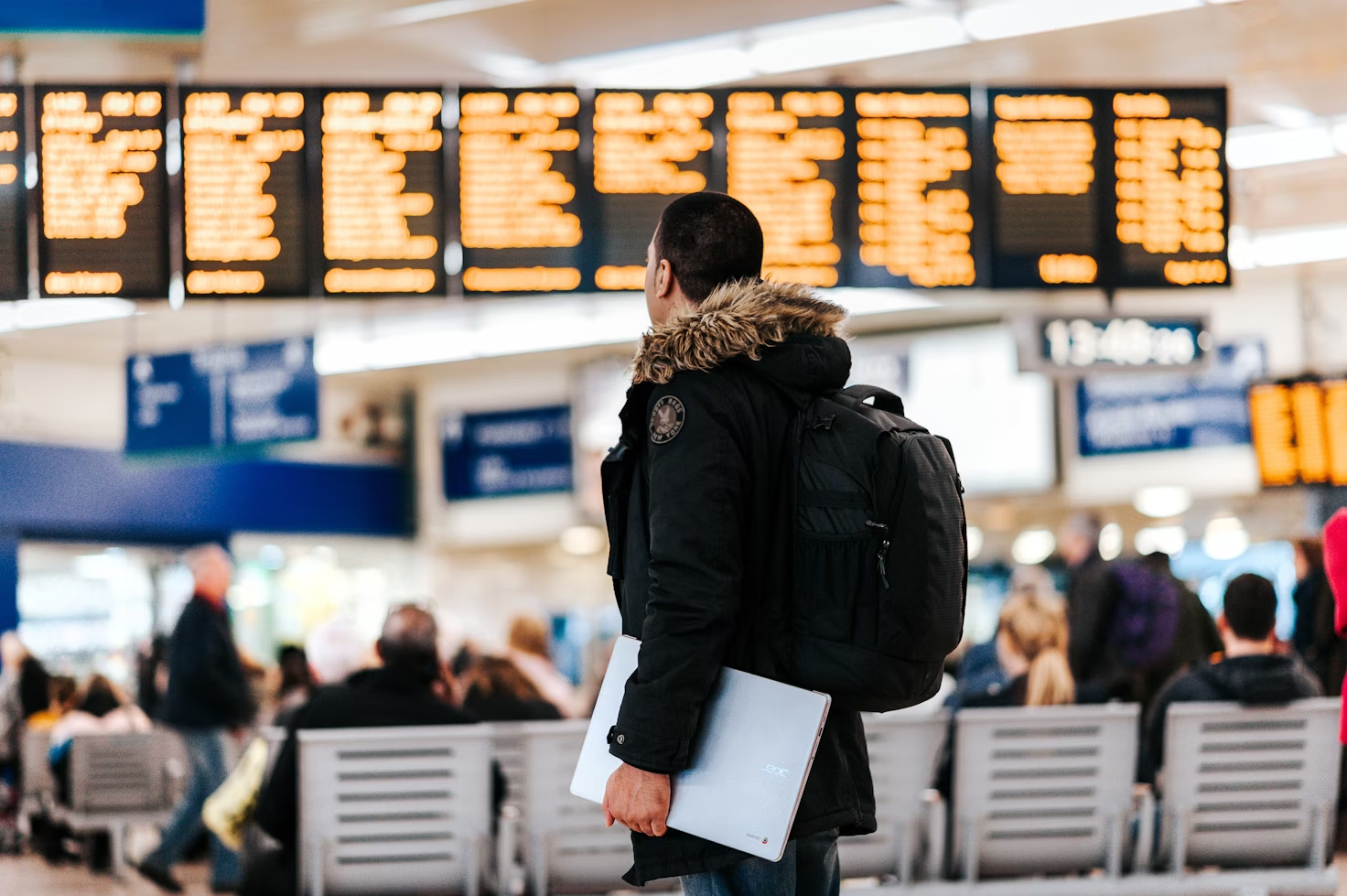

2 Responses
Inspired by this post and you.
I am suffering with both IBS and Diverticular and am trying not to let this put me off my travel plans post-Covid. One thing I am particularly worried about is squat toilets. Are they common in Greece? Are they a problem for people with bowel issues?